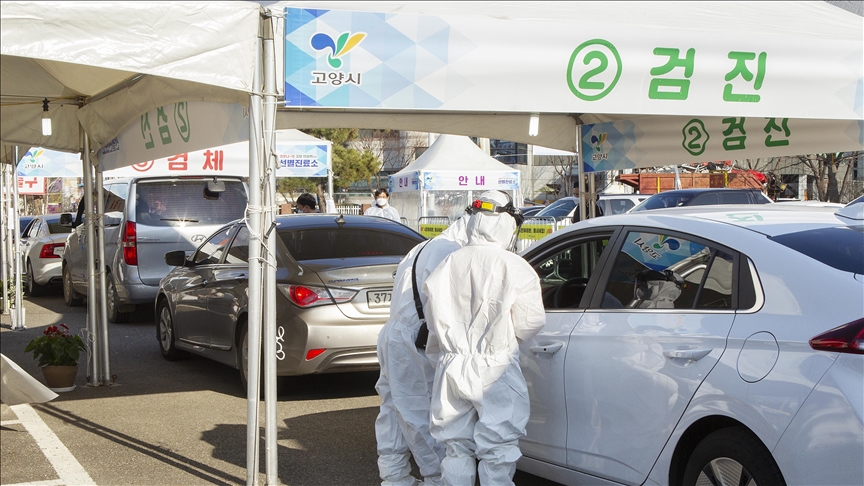South Korea on Thursday reported nearly 3,300 new COVID-19 cases, the highest single-day spike since the country's pandemic outbreak last year, local media reported.
According to the Yonhap News Agency, the country recorded 3,292 new cases in the last 24 hours, bringing the total caseload to 406,065, as the country battles the pandemic's fourth wave.
The new spike broke the previous record of 3,270 COVID-19 cases in a single day on Sept. 25.
With 29 more fatalities, the death toll has now reached 3,187, according to the Korea Disease Control and Prevention Agency.
Since July 7, new infections have been rising in the country following the emergence of the Delta variant.
The capital Seoul, one of the country's major COVID-19 hotspots, reported 1,423 cases in the past 24 hours, the second-highest number in a single day, putting pressure on already over-burdened hospitals as the bed occupancy rate in intensive care units for coronavirus patients crossed 80% in the city while standing at 63.8% for the entire country, according to report.
- As we've seen a growing number of cases mostly in high-risk facilities rather than among critically ill coronavirus patients, now is not the right time to strengthen social distancing rules- Son Young-rae, a high-ranking official at the government agency, was quoted as saying by the agency.
Cases spiked after the government eased restrictions across the country under the "living with COVID-19" scheme on Nov. 1 to allow people to return to normal life, according to the report.
Under that scheme, the government allowed people to gather in groups of up to 10 in the capital and its surrounding areas, while the limit was raised to 12 in other parts of the country, regardless of vaccination.
Limits on working hours for businesses were also lifted, though people asked to continue wearing masks indoors.
When entering high-risk facilities such as pubs, nightclubs, and indoor gyms, visitors must show their immunization certificates or negative COVID-19 test results.
South Korea intends to lift all restrictions by the end of February of next year.
So far, 42.11 million people, or 82% of the country's 52 million population, have received their first dose of the COVID-19 vaccine, while over 40.31 million, or 78.5% people, have been fully vaccinated, according to the agency.
